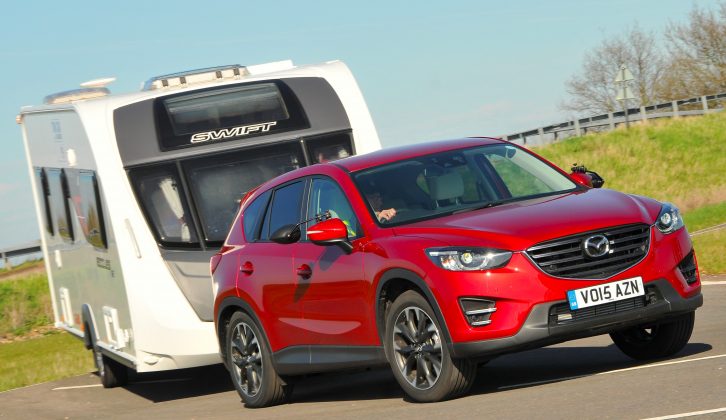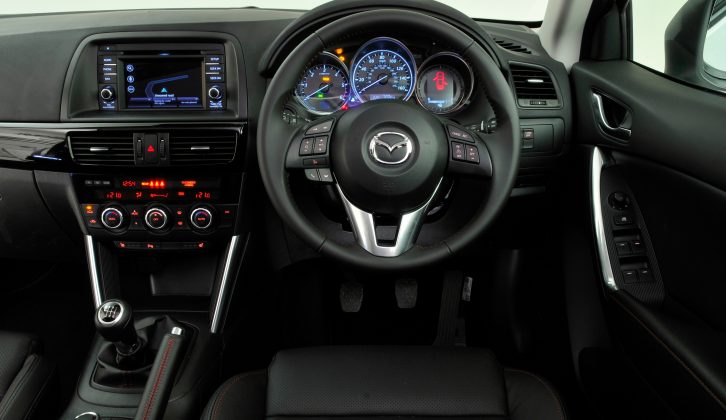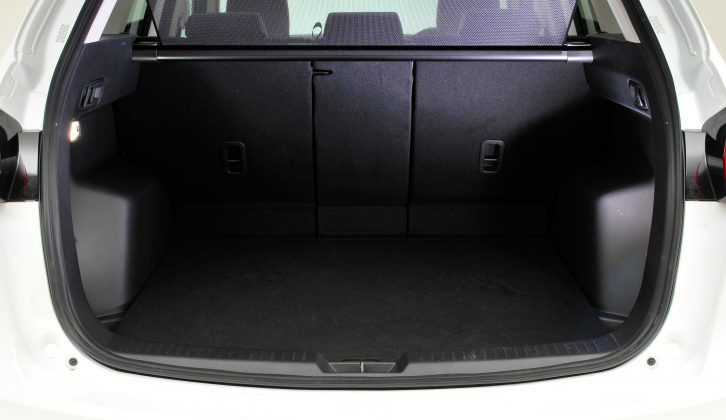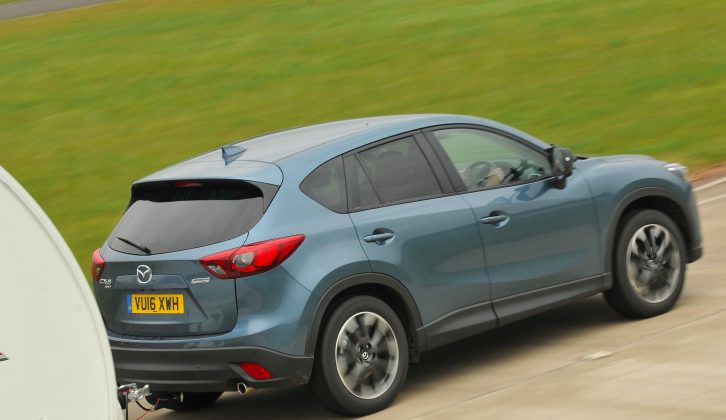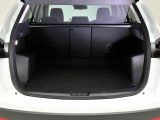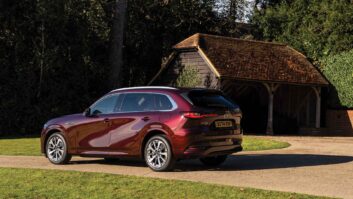Where the Nissan Qashqai forged a hugely successful light-SUV path, other manufacturers were compelled to follow, and the CX-5 of 2012 was Mazda’s bid to pinch some sales.
Straight away it proved a worthy contender, boasting a range of exceptional engines that are impressively punchy, while emitting comparatively little carbon dioxide and drinking relatively little fuel.
Petrol fans could choose a 162bhp Skyactiv-G 2.0-litre engine, while diesel aficionados were treated to the 2.2-litre Skyactiv-D with either 147bhp or a more towing-friendly 173bhp.
Both were linked to an all-new five-speed manual gearbox or a new six-speed automatic.
No matter which trim level you choose, the CX-5 has a great deal of standard equipment, including air-conditioning, cruise control and Bluetooth connectivity. There’s also plenty of space for front and rear occupants.
Mazdas tend to dominate in ownership surveys, with superb scores for reliability as well as dealer service.
So it looks as if the CX-5 could well be the perfect tow car. Well, not quite.
Model history
Mazda revealed its new crossover at the 2011 Frankfurt Motor Show, and expectations were high.
Not only was it designed and constructed using Mazda’s new Skyactiv engineering philosophy, but it also heralded the company’s new ‘Kodo’ design language, which has since permeated the rest of the company’s range, MX-5 roadster excepted.
Skyactiv wasn’t just about efficient new engines, it was about a complete redesign of the way the car was constructed, with low weight being key.
The shortage of heft and the sheer efficiency of the engines gave the Mazda CX-5 superb CO2 and mpg figures, which, of course, pays dividends not only at the pumps, but also when the time comes to renew your road tax.
The front-wheel-drive petrol model emits just 139g/km of CO2. It also boasts an official average of 47.1mpg, which is remarkable for a petrol-engined SUV.
Meanwhile the 147bhp 2.2-litre diesel emits 119g/km and it’s claimed to sip fuel at an average of 62.8mpg – again, superb for this type of vehicle.
Of course, the Mazda CX-5’s low weight is good for efficiency, but can be less ideal when considering what tow car potential it has and trying to match it to a van that suits your needs.
The good news is that the CX-5 suffers no ill effects brought on by its lightness. The more powerful diesel is strong with a caravan attached, to the extent that it shrugs off hills with ease, while hill starts and lane-change manoeuvres should cause no nervous moments.
It also stops quickly and smoothly. The perfect vehicle then? Not quite.
The Mazda is undeniably good fun to drive, but that entertainment comes at the cost of an overly firm ride quality. Far too many bumps make their presence felt when you’re driving solo on all roads, although Mazda took steps to address these issues in a 2014 facelift, so later cars are better.
Likewise, while that diesel engine is impressively light on the wallet, it’s much heavier on your ears. There’s also far too much wind and road noise.
Trouble spots
One of the most common issues with the Mazda CX-5 is with its windscreen. It’s bonded to the frame, but the outer edges of the glass are exposed, rendering it vulnerable to stone-chips and debris.
If the windscreen becomes damaged in any way, the resultant crack usually spreads quickly.
There have also been reports of rattling interior trim, which can prove tricky to remedy.
In addition, the CX-5 has been the subject of a couple of recalls.
The first concerned ‘unusual-feeling brakes’, and another was due to an engine oil-filtration issue. Both should have been fixed by Mazda dealers under warranty, for free.
The car also likes its tyres to be swapped from the front axle to the rear every so often. It automatically notifies you of this via a message on the dashboard every 6000 miles. Mazda dealers usually perform this for free.
However, as befits Mazda’s good showing in various ownership surveys, that’s about the extent of the bad news.
The CX-5’s engines, electrics, filters, bulbs and brakes are all robust, and unlikely to leave you at the side of the road.
All of which makes it even more of a shame that maintenance is so expensive. An interim service is likely to relieve you of more than £300, and major services can cost on the rich side of £450. That’s a lot for a family SUV.
Verdict
The Mazda CX-5 may not be the perfect tow car, but it’s certainly a very good one.
It’ll undertake towing duties with aplomb, and it won’t cost a great deal in fuel while doing so. It also makes a good family car, with plenty of cabin space.
It’s only let down by a ride quality that can be overly firm, the fact it lets too much noise into the cabin, and the sheer expense of its regular servicing.
The model we would choose is the Mazda CX-5 2.2D Skyactiv-D 173. Its strong and punchy engine makes a mockery of the weight of your caravan, and the roomy, well-equipped cabin is a great place to spend time.
However, we would avoid the 2.0 Skyactiv-G 147. The petrol-engined CX-5 doesn’t have the sheer torque to allow it to shrug off towing duties with quite the ease of the diesel version.
What you need to know
If you’re in the market for a 2012-on Mazda CX-5, right now you’ll need a budget of between £8000 and £30,000.
At the bottom end of that range you’ll get a well-used example with a six-figure mileage. That shouldn’t necessarily be a deal-breaker though, because the CX-5 is a robust and reliable car that can easily cope with hefty mileages.
If you have the wherewithal to increase your budget to around the £14,000 mark you’ll be in line for a facelifted post-2014 car with lower mileage and those suspension refinements to make the CX-5 more comfortable.
Here are some useful figures (for a 2012 Mazda CX-5 2.2D 173bhp):
- Kerbweight 1605kg
- 85% match 1364kg
- Towing limit 2000kg
- Towball limit 88kg
According to quotes obtained from PF Jones, it will cost £128.16 to equip a Mazda CX-5 with a Witter flange towbar, or £211.68 if it is a Witter detachable towbar.
And in terms of servicing costs, you’re looking at £303.33 for an interim service and £464.33 for a full service, according to Servicing Stop.
Hill starts and lane-change manoeuvres should cause no nervous moments
